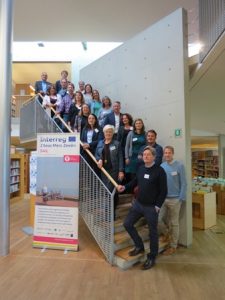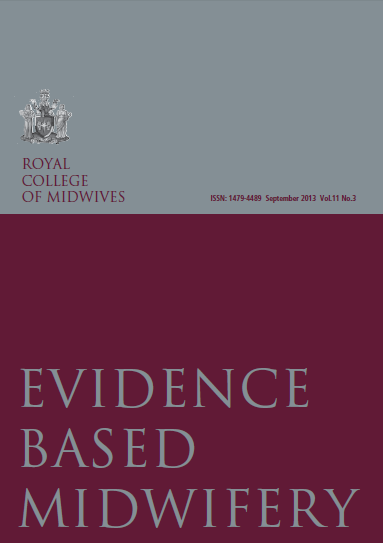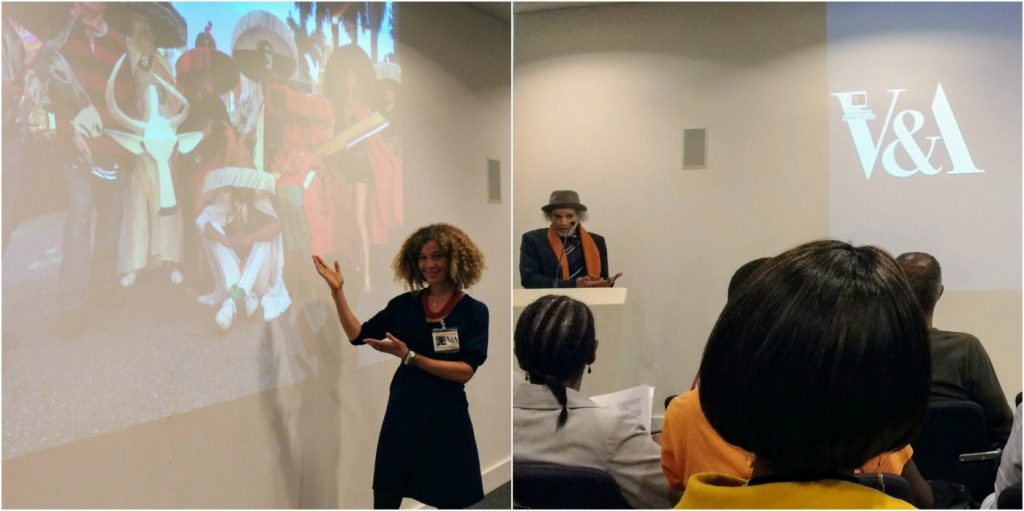UK Research and Innovation (UKRI) Non-Executive Board
On Thursday Jo Johnson announced the non-executive members of the UKRI Board.
- Sir John Kingman (Chair of UKRI) is the Legal and General Group Chairman and Former Second Permanent Secretary to HM Treasury
- Fiona Driscoll (UKRI Audit Committee Chair) is Chair of the Audit Committee of Nuffield Health
- Mustafa Suleyman is co-founder and Head of Applied AI at DeepMind
- Professor Sir Peter Bazalgette is the founder of a successful independent TV production company and now Executive Chairman of ITV
- Professor Julia Black is Pro Director for Research at the London School of Economics
- Professor Sir Leszek Borysiewicz is Vice-Chancellor of the University of Cambridge (stepping down at the end of the month), and Chair of Cancer Research UK
- Lord (John) Browne of Madingley is the Executive Chairman of L1 Energy, and former Chief Executive of BP plc
- Sir Harpal Kumar is the Chief Executive of Cancer Research UK
- Professor Max Lu is the President and Vice-Chancellor of the University of Surrey
- Professor Sir Ian Diamond is the Principal and Vice-Chancellor of the University of Aberdeen
- Professor Alice Gast is President of Imperial College London
- Vivienne Parry is Head of Engagement for Genomics England
- Lord (David) Willetts is Executive Chair of the Resolution Foundation and former Minister for Universities and Science
- Professor Dame Sally Davies – as Chief Medical Officer and serving civil servant, Dame Sally will not be a formal member of the board but will join board meetings in a personal capacity.
Sir John Kingman, interim UKRI Chair stated: “UKRI’s Board brings together an extraordinary array of brilliant scientific and business leaders. Together with the emerging executive team led by Mark Walport, we will be superbly equipped to ensure the new organisation delivers on the great opportunities it has.”
Jo Johnson said: “UKRI has a pivotal role in our future as a knowledge economy. This is an exceptionally strong board that will ensure the UK’s world leading research system stays at the frontier of science and innovation for decades to come.”
The government has committed to investing over £6 billion per annum in research and innovation.
Labour Party Conference
Industry Research & Innovation
The chair of the Data Analytics All Party Parliamentary Group, Daniel Zeichner, writes in Politics Home on How to convert UK excellence in science and research into wider economic success. Zeichner is a fan of the 2010 Labour government’s Catapult Network. Catapults are technology and innovation centres that are business-led by industry experts providing companies with access to expertise and equipment to speed up the commercialisation of research and drive economic growth.
Zeichner believes adopting new technology is essential to improve UK productivity but that Britain needs to be better at this, stating we’re behind other nations. Catapult centres will shortly fall with UKRI’s remit (UKRI is the merger of the UK’s seven research councils) and Zeichner sees this as advantageous for a more seamless diffusion of research expertise into the private sector, matching industry with update technology. The sticking point is that Catapults are currently partly financed by EU funding so Brexit may well lead to their downscaling or demise. In addition to supporting the expansion of the Catapult network Labour calls for new Retails and Materials and Metals Centres, and for R&D % of GDP spending to be raised, plus additional new investment. Zeichner pledges this will all happen if Labour is elected at the next general election.
In the meantime we need to see what is included in the forthcoming Industrial Strategy White Paper and the autumn budget, and of course any announcements at the Conservative conference.
Immigration – Shadow Home Secretary Diane Abbot claimed the Conservatives have ‘weaponised’ immigration. She stated the immigration targets are ‘bogus’ and will never be met. Meanwhile at the Labour party conference backbenchers are battling for Labour to amend policy and campaign for continued access of the EU single market and customs union post-Brexit. This would mean committing to retaining free movement.
Sadiq Khan @SadiqKhan – To the one million EU citizens in London: you are Londoners, you are welcome & you make a huge contribution. @TSSAunion @LabourList #Lab17
Fees – Wonkhe report that Shadow Chancellor John McDonnell said that as “a result of Labour pressure, the government is now being forced into discussing reducing interest rates or raising repayment thresholds. If they bring forward effective proposals we will support them.” Wonkhe state the Shadow Chancellor did not indicate what he hoped the government would propose precisely, nor would he be drawn on the level of Government compromise that he would support.
Gordon Marsden, speaking at a UCU fringe event, stated the party would “wait and see” what the government offers before committing to a particular course of action. However, he called on the government to present a holistic package including action on loan repayment terms and maintenance support. Marsden wouldn’t state a figure for the level of fee cap which he would support as part of a deal on the student funding system.
BME teachers in schools – Shadow Education Secretary Angela Rayner hit the headlines this week after indicating that current school recruitment policies are not promoting equality stating: “If the only people we see in schools that are black or ethnic minority are the cleaners… then we are perpetuating the problems we have in our communities…. I am sick of soft targets. I am all for hard targets, and if it means we have to force quotas, then I am an advocate for that.”
An article in Politics Home notes that an additional 68,000 teachers from BME backgrounds would be required to reflect the proportion of ethnic minority pupils in English state schools and quotes a DfE source who notes a steady increase in the minority ethnic trainee teachers recently and describes the Leadership, Equality and Diversity Fund. This supports schools to provide coaching and mentoring for BME teachers and increase the representation of BME teachers in senior leadership roles.
National Education Service – Angela Rayner launched her 10 principles behind the National Education Service (NES) described here by Schools Week. This is Labour’s ‘cradle to grave’ proposal for the reform of education and includes increasing school funding, free adult education throughout life, valuing all forms of education and pushing technical and apprenticeship streams as alternatives to traditional routes such as HE. David Morris (ex-Wonkhe, now VC’s policy adviser at Greenwich) blogs for Wonkhe to question what it would mean for the HE sector if Labour were elected and implemented the NES in 2022.
Jeremy Corbyn’s Keynote Conference Speech
Corbyn’s keynote speech which closed the Labour Party Conference emphasised skills and training focusing on free tuition throughout life at any stage and improving on technical and vocational training, establishing these as equal-status alternative routes. Corbyn envisions the National Education Service as ‘universal, free and empowering’, a service that “will give millions a fair chance”.’ A flurry of debate followed on twitter on whether abolishing HE tuition fees would mean reinstating student number controls.
A student numbers cap is not inevitable in a fee-free system, says @GordonMarsden in response to @mgmcquillan , and he doesn’t want one.
During the (very long) speech Corbyn reiterated Labour’s message to the Government “pull yourself together or make way” and detailed the Conservative manifesto commitments that have been dropped from policy, such as grammar school expansion. One aspect Labour agree with the Conservatives on is the importance of the Industrial Strategy.
In his speech, Jeremey Corbyn supported the automation thread prevalent in the Government’s Industrial Strategy for its potential to contribute to the nation’s work/life balance “We need urgently to face the challenge of automation… [it] is a threat in the hands of the greedy but what an opportunity if it’s managed in the interests of society as a whole.”
A Labour spokesperson stated to Politics Home that: increased use of new technology in the workplace will inevitably boost productivity, and a Labour government would force them to pass on the benefits of that to employees through higher wages and shorter hours….
“…the potential for this big technological leap and the increase in productivity to be shared in different ways. If it’s under the control only of large corporations, as it is currently, the sharing out is in one direction in long hours, the fall in real wages and increased profits. Who is in control of that process? If that process of big employment transformation is going to be managed for the benefit of the workforce, that needs to be planned at a national level, it can’t just be left to the companies employing those people or introducing advanced robotics.”
Fringe event – Tackling disadvantage experienced by the armed forces community – This fringe event focussed on issues of housing, education and barriers to future employment. There were calls for skills and qualifications to be transferable and compatible with those in civilian institutions and a particular need for work experience and placements alongside qualifications.
Fringe Event – Brexit Generation: The Debate – This fringe event presented evidence on the issues that prompted young people to vote. Asha, a Young Labour member stated the Brexit message to young people had been wrong and it needed to go beyond thinking about issues like Erasmus and University. Asha went on to say that young people wanted to engage on important issues like mental health in schools, changing the education system so it was not an “exam factory” and building a generation of young people with the digital skills they need.
Labour MP Wes Streeting said education was ‘his number one priority’ and ‘the closest thing to a silver bullet for tackling social issues’. Children should be given the opportunity to explore, fail and find what they are great at rather than being pushing into huge numbers of stressful exams, he stated.
Finally…Wonkhe responded to the Labour Party Conference proclamations discussing where some Labour HE policies would benefit from further details in Key questions for Labour and its higher education policy.
Student Retention
William Hammond, Universities UK, blogged about student dropout rates this week. The blog is in response to a sensationalist Sky News story which targets individual programmes at three universities with dropout rates of 50-60% without considering the validity of the statistics.
Hammond reports that the true picture for the national dropout rate for 2014/15 is near a record low at 6.2%, yet pockets of poor retention are seen within mature students at 11.8%; LPN (students coming from geographical populations where few access HE provision) at 8.2%; and acknowledges ethnicity can also be a factor. (Note: Hammond is only looking at non-completion in first year undergraduate students.)
The blog considers how universities retain students (see paragraphs 3 and 4 here) such as ensuring study choices are right for the student through providing clear information and outreach programmes, inclusive measures and the sticky campus concept.
A commenter to the blog (Andy Penaluna) questions why we don’t track student dropout for positive career opportunities.
Science and Innovation Audits
The Department for Business, Energy and Industrial Strategy (BEIS) invited consortia to form around geographic and technological themes and apply to be involved in the science and innovation audit (SIA) process. These consortia are made up of businesses, universities, research and innovation organisations, Local Enterprise Partnerships (LEPs) and their equivalents in the devolved administrations.
The summary report presents the findings of the second wave of audits:
Alternative Providers
HEFCE have commenced a planned series of blogs on Alternative Providers. On Wednesday they explored the diversity of alternative providers in Alternative providers: debunking the myths. The blog covers the variability of alternative providers with regard to sizes, focus, geographical location and student loan eligibility. The blog is a useful simple introduction for colleagues unfamiliar with alternative providers.
Parliamentary Questions
Student Loans
Q: Bambos Charalambous – Whether she plans to (a) cap or (b) reduce the interest rate applied to student loans.
A: Jo Johnson – We have a world class student finance system, which has enabled record numbers of people to benefit from a university education. Latest UCAS data for 2017 shows more disadvantaged young people have been accepted to university than for the whole of the 2016 application cycle.
The student funding system removes financial barriers for anyone hoping to study, and is backed by the taxpayer. The interest rate on student loans remains significantly below the relevant Bank of England reference rate for unsecured personal lending. In addition, the repayment terms of student loans are significantly more favourable for the borrowers than commercial loans. Monthly repayments are linked to income and not to the amount borrowed or the interest rate. Borrowers earning less than the repayment threshold of £21,000 repay nothing at all. Loans are written off after 30 years with no detriment to the borrower, and student loans are available to all eligible students regardless of their previous financial history.
As with all Government policy, we continue to keep the detailed features of the system under review to ensure it remains fair and effective.
Other news
The Scottish Funding Council published a report on Widening Access 2015-16 showing dropout rates for disadvantaged students at 13% (drop out is 7% for affluent students). The Herald covers the story here.
The Guardian report on Clearing 2017: what worked for universities, and what didn’t shares a perspective from four universities on this year’s Clearing marketing practices.
Fees – Simon Marginson blogs for Wonkhe highlighting that the contribution a university education makes as public goods hasn’t been picked up during the current tuition fee wrangling. It touches upon accessibility to HE, a graduate’s more discriminating understanding of culture, and goods at the collective level – new knowledge created by research, positive effects of higher education on social tolerance. On the TEF Simon writes: If higher education institutions follow the logic of the consumer market and the Teaching Excellence Framework as the government wants them to do, over time unfinanced public goods will be whittled away. The TEF requires institutions to focus on maximising individual student satisfaction scores and individual employability. This requires England’s universities to target more precisely their spending and activities to maximise performance as measured by the TEF indicators. In other words, the more the university neglects extraneous unfunded public goods such its contributions to the local region, the more ‘effective’ it will become. Simon ends by debating whether the private/public split that funds HE should be differently balanced.
The Guardian ran an article on overseas academics who have been refused visas to speak at UK conferences.
Subscribe!
To subscribe to the weekly policy update simply email policy@bournemouth.ac.uk
JANE FORSTER | SARAH CARTER
Policy Advisor Policy & Public Affairs Officer
65111 65070
Follow: @PolicyBU on Twitter | policy@bournemouth.ac.uk
 Research funded by the British Heart Foundation looking at tissue fibrosis (scarring), will soon be published in Experimental Gerontology, one the world’s leading journal on ageing. Fibrosis occurs naturally as part of our injury response process but also develops in ageing and chronic disease. Treatments are scant despite fibrosis leading to organ failure and increased risk of death.
Research funded by the British Heart Foundation looking at tissue fibrosis (scarring), will soon be published in Experimental Gerontology, one the world’s leading journal on ageing. Fibrosis occurs naturally as part of our injury response process but also develops in ageing and chronic disease. Treatments are scant despite fibrosis leading to organ failure and increased risk of death.





 The AHRC Heritage Research team – led by Professor Rodney Harrison at University College London – will raise the profile of the heritage sector and provide leadership by working with the research community and partner organisations, in particular helping early career researchers to access opportunities.
The AHRC Heritage Research team – led by Professor Rodney Harrison at University College London – will raise the profile of the heritage sector and provide leadership by working with the research community and partner organisations, in particular helping early career researchers to access opportunities.



 Congratulations to Dominique Mylod, clinical doctoral student in the
Congratulations to Dominique Mylod, clinical doctoral student in the 





 South Koreans protest against China’s treatment of northern defectors. EPA/Jeon Heon-KyunAs North Korea’s nuclear weapons programme and provocative missile tests
South Koreans protest against China’s treatment of northern defectors. EPA/Jeon Heon-KyunAs North Korea’s nuclear weapons programme and provocative missile tests 
 Not to be missed!
Not to be missed!
 The 12 non-executive members of UK Research and Innovation (
The 12 non-executive members of UK Research and Innovation ( Bournemouth University Research Associate Katie Thompson joined a group of volunteers in April 2017 to initiate a Sustainable Green Toilet Project in Kenya, with the charity ACEF. The aim of this project is to build a new toilet facility for 800 school children (including over 100 orphans) who attend and live at the Brainhouse Academy, a school situated in one of the world’s largest slums (Mathare North) in Nairobi, Kenya.
Bournemouth University Research Associate Katie Thompson joined a group of volunteers in April 2017 to initiate a Sustainable Green Toilet Project in Kenya, with the charity ACEF. The aim of this project is to build a new toilet facility for 800 school children (including over 100 orphans) who attend and live at the Brainhouse Academy, a school situated in one of the world’s largest slums (Mathare North) in Nairobi, Kenya.










 BU Professor has been invited to a series of plenary and invited lectures.
BU Professor has been invited to a series of plenary and invited lectures. Research reaching non-academic audiences
Research reaching non-academic audiences April’s Café Scientifique – Should we help machines understand and respond to our emotions?
April’s Café Scientifique – Should we help machines understand and respond to our emotions? Postgraduate Research Experience Survey (PRES) 2024 – 2 WEEKS LEFT
Postgraduate Research Experience Survey (PRES) 2024 – 2 WEEKS LEFT Working with The Conversation: online training session – Wednesday 8th May
Working with The Conversation: online training session – Wednesday 8th May Apply for up to £1,000 to deliver an event and take part in a national festival of public engagement with research
Apply for up to £1,000 to deliver an event and take part in a national festival of public engagement with research MSCA Postdoctoral Fellowships 2024
MSCA Postdoctoral Fellowships 2024 Horizon Europe News – December 2023
Horizon Europe News – December 2023